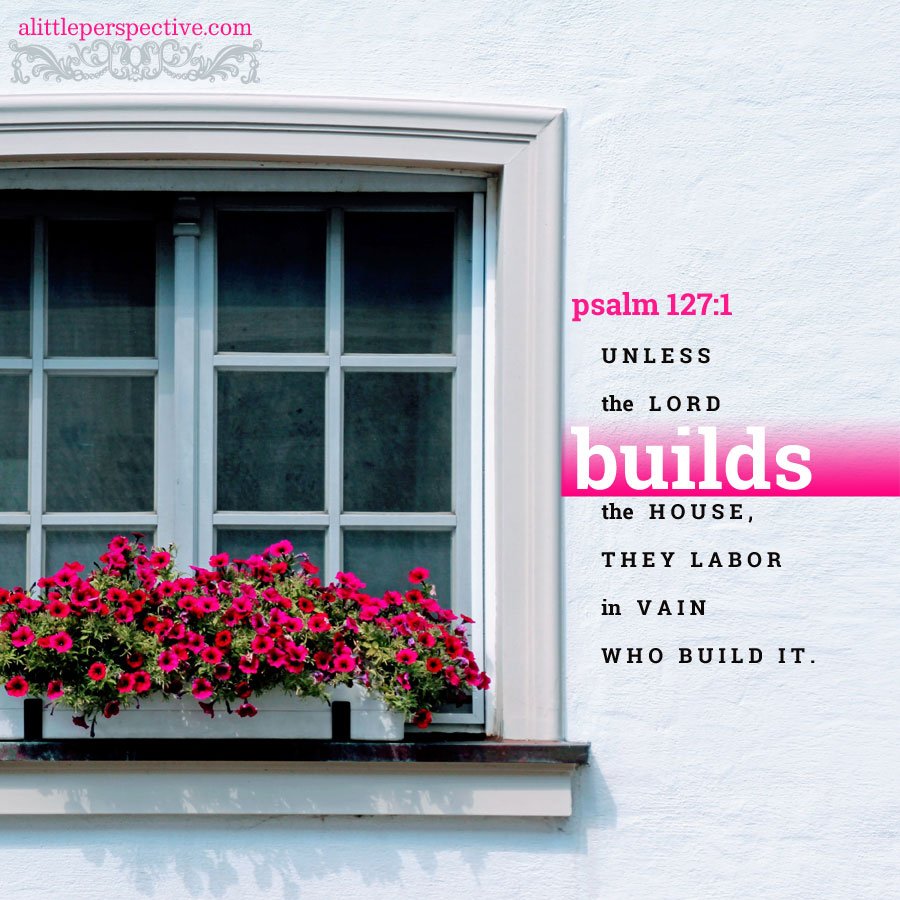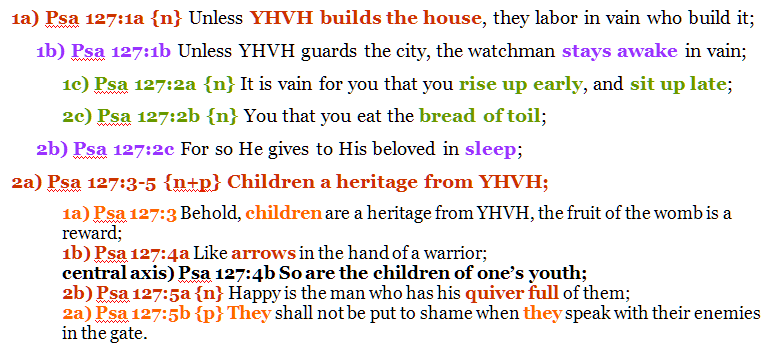Read Psalm 127 at Bible Gateway.
Hebrew paragraph divisions
1a Unless the Lord builds the house, They labor in vain who build it; {n}
1b Unless the Lord guards the city, The watchman stays awake in vain.
2a It is vain for you to rise up early, To sit up late, {n}
2b To eat the bread of sorrows; {n}
2c For so He gives His beloved sleep.
3 Behold, children are a heritage from the Lord, The fruit of the womb is a reward.
4 Like arrows in the hand of a warrior, So are the children of one’s youth.
5a Happy is the man who has his quiver full of them; {n}
5b They shall not be ashamed, But shall speak with their enemies in the gate. {p}
Original Hebrew
to build
Strong’s H1129 בנה banah, a primitive root meaning, “to build, to erect” (as a house or temple). The ancient pictographs are bet + nun + hey.
bet ב = the house, thus house, household, family, in, within
nun נ = the seed, thus continue, heir, son
hey ה = the man with upraised arms, thus look, reveal, wonder, worship, breath
During the era of the patriarchs, the women of the family made a new tent panel every year, that would be attached to the existing structure, replacing an older, worn tent panel. Thus over the course of several years the entire tent was renewed. This action of building the tent is described as the house (bet) continues (nun) to breathe (to live, hey). In the same way that the physical structure of the house continues by the addition of new tent panels, the biological household or family is renewed by the addition of sons.
children
Strong’s H1121 ben, a concrete noun meaning, “son, children;” from Strong’s H1129, banah (see above). As tent panels are added to the physical house to build the house, so sons are added to the family to build the family.
to guard
Strong’s H8104 שמר shamar, a primitive root meaning, “to keep, to watch, to guard as a husbandman or shepherd.” The Ancient Hebrew Lexicon tells us that the shin + mem in this root were originally a sin + nun, the similar sounds becoming transposed over time. So the ancient pictographs were sin + nun + resh.
sin ס = the thorn, thus grab, hate, protect
nun נ = the seed, thus continue, heir, son
resh ר = the head of man, thus head, first, top, beginning, man
Shepherds would surround their flocks at night with thorn branches to protect them from predators when they were pasturing them away from the fold. They kept or guarded their flocks so that their children would be provided for. Thus shamar is to closely guard (sin) for the next generation (nun) that which is of first importance (resh).


















Leave a Reply